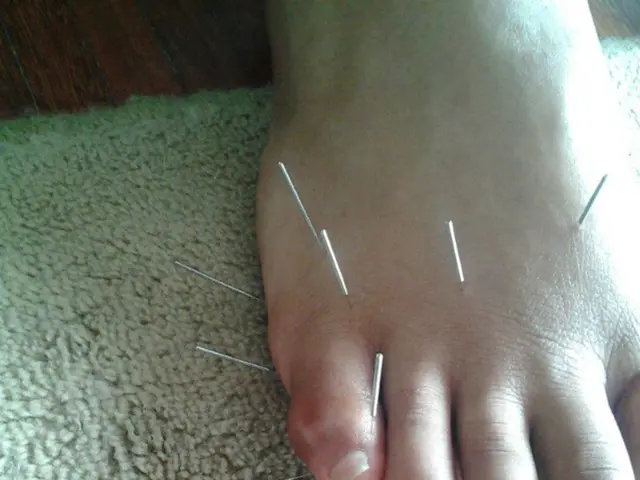Unearthed connection between vitamin D and contraceptive methods revealed
Busting Hormones: Finding a Relationship Between Estrogen-Based Birth Control and Vitamin D Levels
Say, you're taking estrogen-based birth control and you've noticed your energy levels are up and your bones feel strong. Well, there might just be a connection! Researchers have recently found a link between estrogen-based birth control and elevated vitamin D levels in women, a vitamin crucial for strong bones and overall health.
Vitamin D is a powerhouse nutrient that plays an essential role in maintaining balanced calcium and phosphorus levels in our bodies and enhancing calcium absorption. Sources of vitamin D are abundant in our diets, with fish and eggs being rich sources, but it's important to note that about 90% of our vitamin D comes directly from sun exposure.
However, low levels of vitamin D can lead to severe health issues like rickets and osteomalacia (softening of the bones) and are particularly risky during pregnancy, given the essential role of vitamin D in the formation and growth of the fetal skeleton.
To understand the impact of estrogen-based birth control on vitamin D levels, Dr. Quaker E. Harmon of the National Institutes of Health's National Institute of Environmental Health Sciences in Research Triangle Park, NC, took things into her own hands. She initiated a study involving nearly 1,700 African-American women aged 23-34 living in and around Detroit, MI, focusing on their contraceptive use and exposure to sunlight or supplements.
The researchers found that women who took estrogen-based birth control pills, patches, or rings had higher vitamin D levels compared to other women, even after adjusting for confounding factors like seasonal exposure to light. As a matter of fact, current users of estrogen-based contraception had higher levels of vitamin D, while past users had average levels. Interestingly enough, the researchers couldn't find any behavioral differences to explain the increased vitamin D levels among those using estrogen-based birth control.
According to Dr. Harmon, after adjusting for confounding variables, the use of contraceptive pills, patches, or rings containing estrogen was associated with a 20% higher level of 25-hydroxy vitamin D. On top of that, it is worth noting that as a woman aims to become pregnant, she may be at risk of developing vitamin D deficiency as a result. Essentially, it's advised that women who plan to discontinue birth control should take steps to ensure their vitamin D levels are adequate before and during pregnancy.
But why does estrogen-based birth control impact vitamin D levels then? According to Dr. Harmon, they're still not entirely sure. Some research has suggested that the levels of other vitamin D metabolites may change when women use contraceptives containing estrogen, indicating possible alterations in vitamin D metabolism. Further investigation is needed to better understand this relationship.
However, it should be emphasized that the study looked only at African-American women, so it remains unclear whether race plays a role. Nevertheless, Dr. Harmon is optimistic that this association is not related to race, as the same association has been observed in other populations.
To delve deeper into this relationship, Dr. Harmon plans to continue following this group of women and is working on another group of participants to investigate how vitamin D varies across the menstrual cycle. In the meantime, it's essential to ensure that you maintain optimal vitamin D levels, whether you're on birth control or not, to safeguard your health and bones!
- For women taking estrogen-based birth control, it's crucial to remember that this relationship may also impact their overall multi-nutrient health, as researchers have found a connection between estrogen-based birth control and elevated vitamin D levels.
- Given the essential role of vitamin D in maintaining strong bones and overall health-and-wellness, it's important for women, especially those on birth control, to be aware of potential vitamin D deficiencies and their cultural implications on women's health.
- In the pursuit of understanding the impact of estrogen-based birth control on vitamin D levels, future studies should investigate the relationship in diverse populations to further clarify the role of race and ethnicity in women's vitamins consumption.
- To maximize the health benefits of vitamin D, women should focus on their nutritional intake through consuming foods rich in vitamin D, such as fish and eggs, while also prioritizing safe sun exposure.
- By safeguarding optimal vitamin D levels, women can help maintain strong bones and overall health and contribute to improved women's vitamins, ensuring a balanced life in their health-and-wellness journey.
- Scientists are encouraged to continue exploring the relationship between estrogen-based birth control and vitamin D, as a better understanding of this connection could provide valuable insights for improving women's health.







